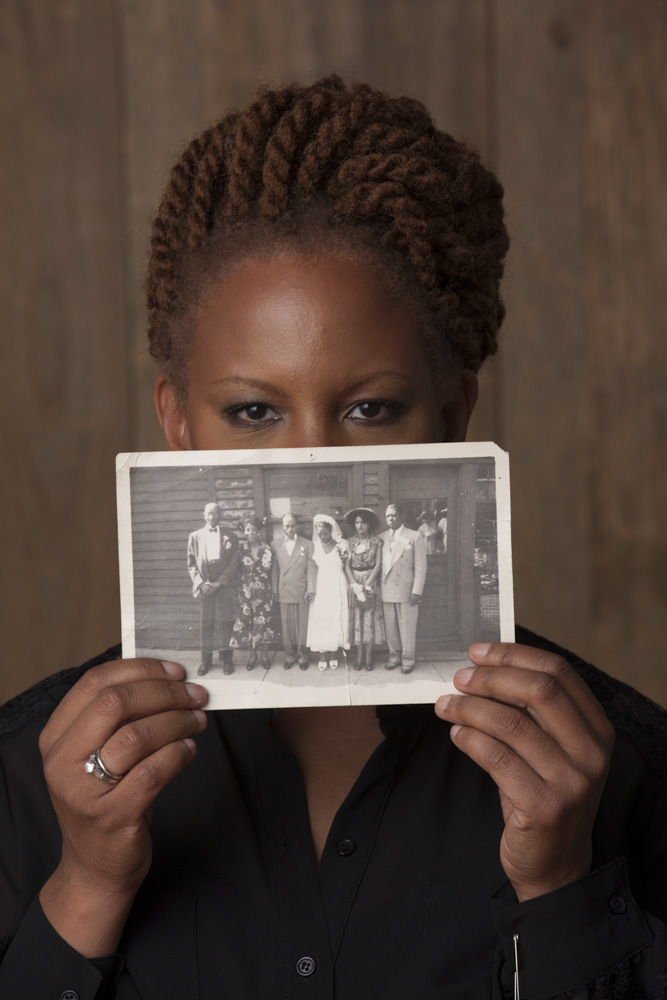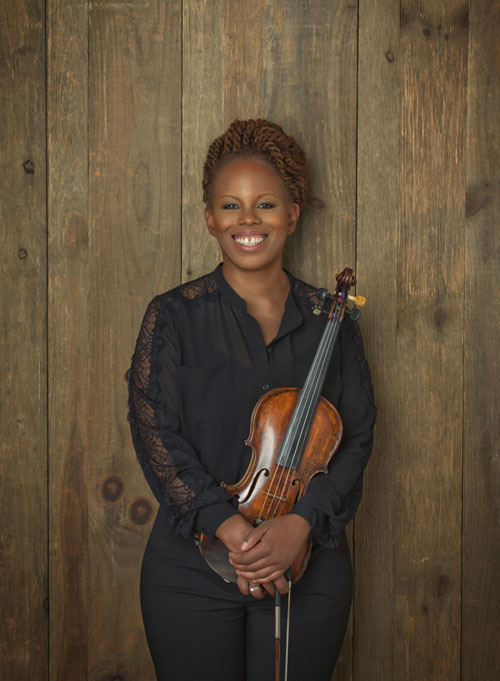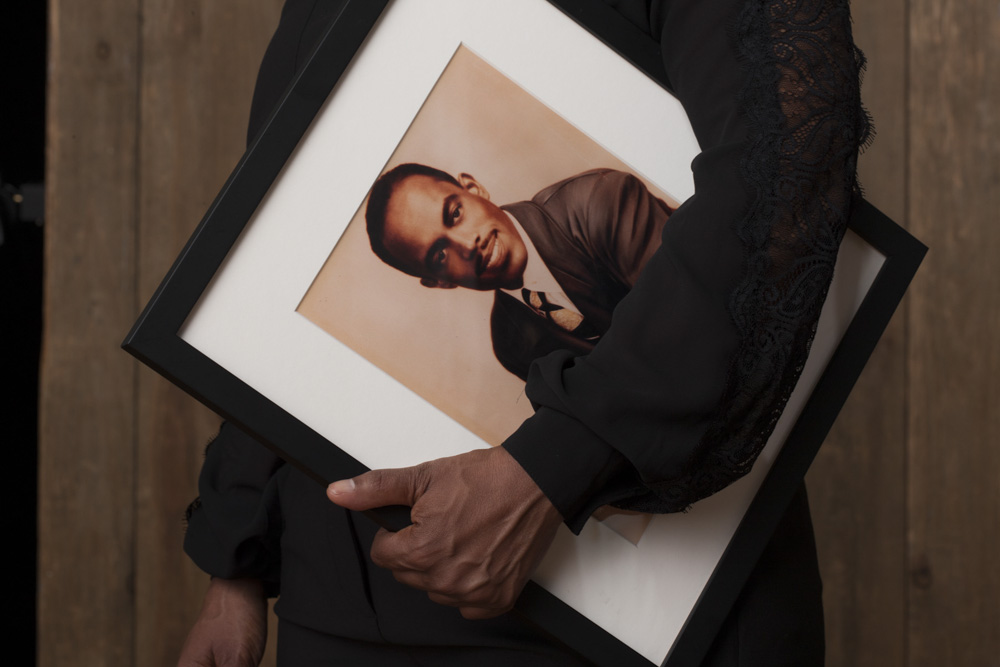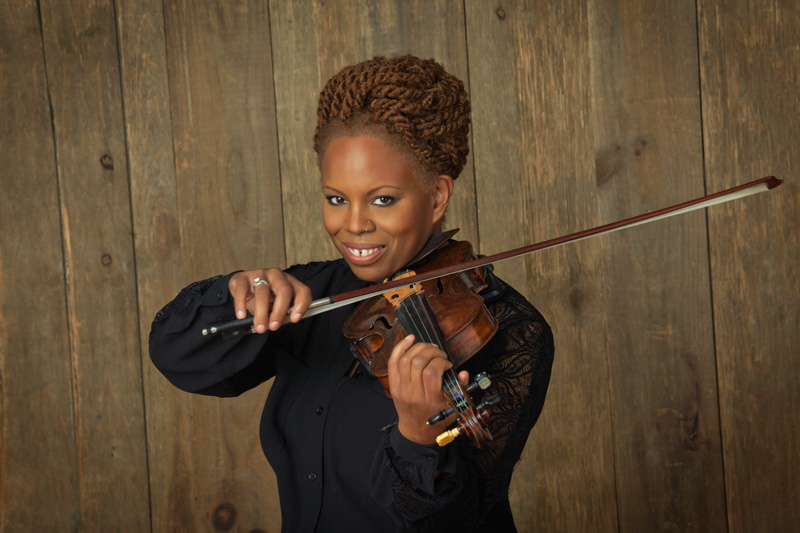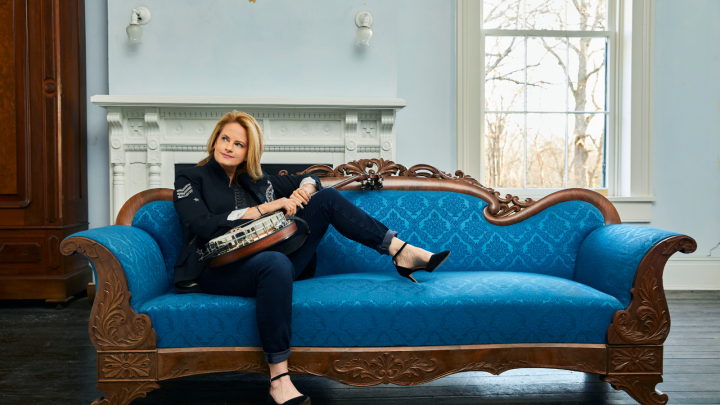Regina Carter Breathes New Life into Old Tunes
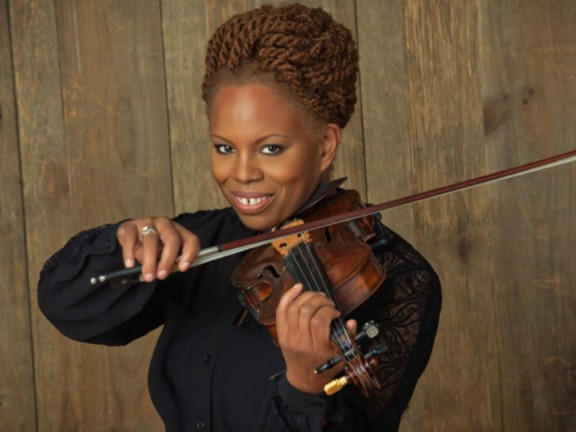
Inspiration can come from anywhere - even the websites we see advertised on TV. For Regina Carter, one of the most respected jazz violinists of her generation, the inspiration behind her last three albums was a desire to trace her family’s roots and make a connection with music. The quest began thanks to Ancestry.com. The journey continues at the South Orange Performing Arts Center on Saturday, March 5. In 2006, her series began with “I’ll Be Seeing You: A Sentimental Journey.” This album paid tribute to Regina’s late mother, Grace Carter, with a journey through songs of the 1920s, ‘30s and ‘40s. Four years later, she released “Reverse Thread,” which went all the way back to her family’s original roots in Africa. The album took traditional African music and infused it with contemporary jazz. And two years ago, her most recent album, “Southern Comfort,” was released. This album traced music back to her father’s roots in the American South. It also offered her the opportunity to learn more about the songs of her grandfather, a coal miner in Alabama who died on before Regina was born.
Carter grew up in Detroit, but spent summers in Alabama with her grandmother and cousins. Making this album helped her get closer to her grandfather; a connection helped by the experiences and time spent down south. “The songs bring back memories of my time down there,” she said.
Her research involved finding distant relatives, reading books about the era and discovering recordings in the Library of Congress from the Alan Lomax collection, Alabama Folklife Association and John Wesley Work III. Many of the songs on “Southern Comfort” came from field recordings throughout Appalachia.
“Lomax traveled around with his tape recorder,” explained Carter. “He would interview people and have them sing the songs. You can hear them clearly, but there’s no musical accompaniment that goes along with most of these.”
Without melodies to hear or sheet music to work with, Carter and her band came up with the music based on how the songs were sung. She created some arrangements herself and some with the band. The end result was not only bringing these songs back to life, but giving them an exciting and completely new contemporary sound of their own.
“Some I would hear and think Stefon Harris or Marvin Sewell or Adam Rogers might do a great job on this one,” she recalled. “I would just hear it and think, ‘This sounds like this person.’ I would send three or four tunes, so they could see if any of the tunes spoke to them. If not, just let me know and I’d send them a new batch of tunes because that was important to me. I wanted whoever was arranging the tunes… I didn’t want to force it on them; they needed to have a connection to the piece as well. There’s no music; you just hear the single line and it’s ‘What do you hear? What are you going to create around this?’ But don’t lose the beauty of the line that’s there.”
Researching the songs was exciting for Carter. She loved finding music that correlated with the historical time period of her grandfather. Some of the songs she found from the Alabama Folklife Association were prison songs or old blues tunes or even songs that came out of children’s games or school-time numbers.
“I was excited and wanted to share my findings,” she said. “And then when I began performing live and sharing the stories and playing some of the field recordings I found, people would say things like, ‘I also had a grandfather who was a coal miner’ or ‘You made me remember the times I had as a child with my grandparents.’ So, in sharing it — even though I was just sharing it because it was my excitement - I felt like for a lot of people, we had a common thread and made other people curious as well.”
When “Southern Comfort”first came out, Carter played the majority of songs from the album during each show. Now that the record has been out for two years, she says she looks for a vibe or feeling on stage that directs her which way to go. Sometimes she will follow the set list, other times she will do a different song than planned from “Southern Comfort” or something completely different.
“I’ll just get a vibe,” she explained. “I always follow my gut and go that way musically instead of trying to force something on an audience. I try to get a vibe of what I think I should be doing, but I always get a couple of field recordings in there. I’ll talk about what the field recording meant to me or where I found it; how it represents my grandfather or his lifetime or my life spending summers with my grandmother. If it’s one of the more contemporary pieces [she covers songs by Gram Parsons and Hank Williams on ‘Southern Comfort’] I’ll explain why that piece was included. And then I play a sample of the field recording — just a few seconds of it — so they get it. They hear it, hear what the melody is, and then we play our arrangement of it. People find that very interesting because, in most cases, they haven’t heard these field recordings.
“If we just play the tune, it’s just a tune they haven’t heard, but if we play the field recording they have a perspective of where our arrangement came from,” she continued. “I think it’s interesting for them to hear what we did with the tunes. A lot of the time people will say, ‘Oh, I recognize that melody, someone used to sing something like that to me when I was a child. But it went a little different or the words were a little different.’ Sometimes people find they have a connection to these field recordings that they forgot about.”
After taking a look at the songs of her mother’s lifetime and discovering the music of her African ancestry, Carter says she plans to take a break from the family roots with her next project. Her next album will celebrate the work of Ella Fitzgerald, one of Carter’s favorite vocalists. She plans on returning to her genealogical inspiration down the line, but hopes to get other family members involved with the research. The deeper she digs, the more fascinating it becomes.
“In the Appalachians there were Scottish and Irish descendants, slaves and Native Americans. It was a cultural hodgepodge and the music resulting from it is intoxicating. This disc was to pay homage to my family,” said Carter, “but it turned out to be so much more.”
Regina Carter will be at the South Orange Performing Arts Center, One SOPAC Way, on Saturday, March 5 at 8 p.m.

